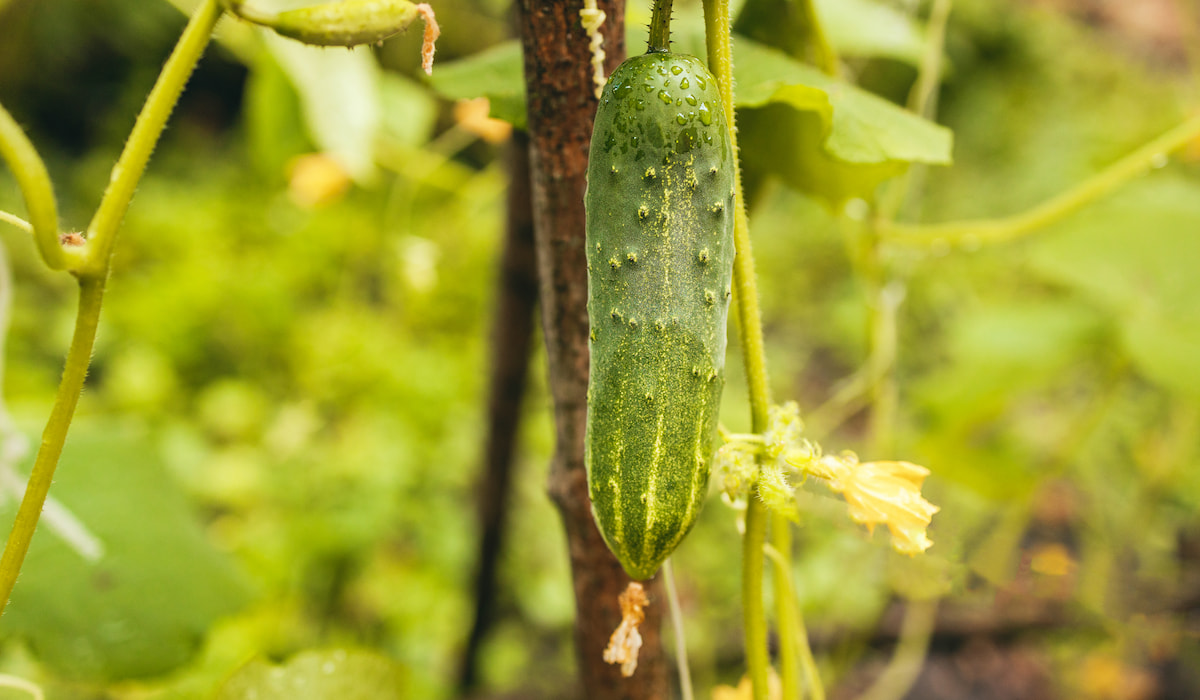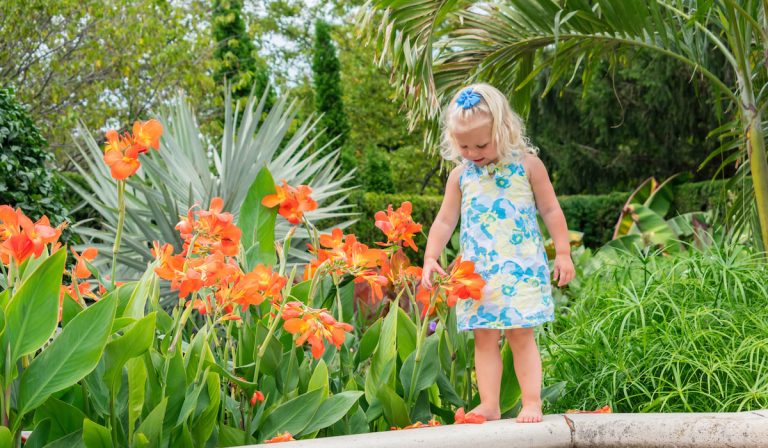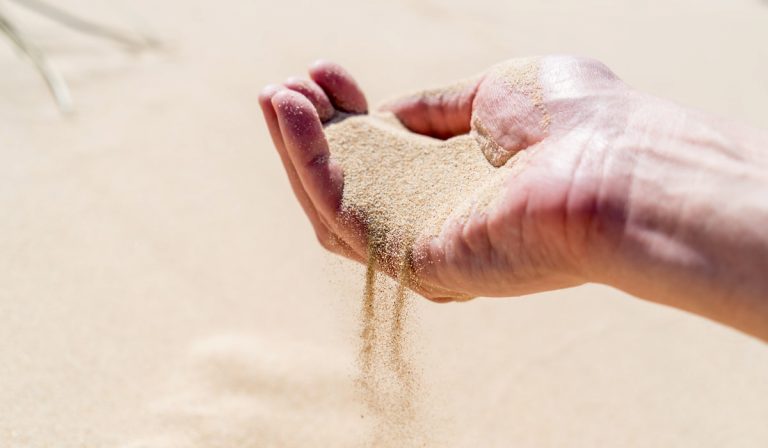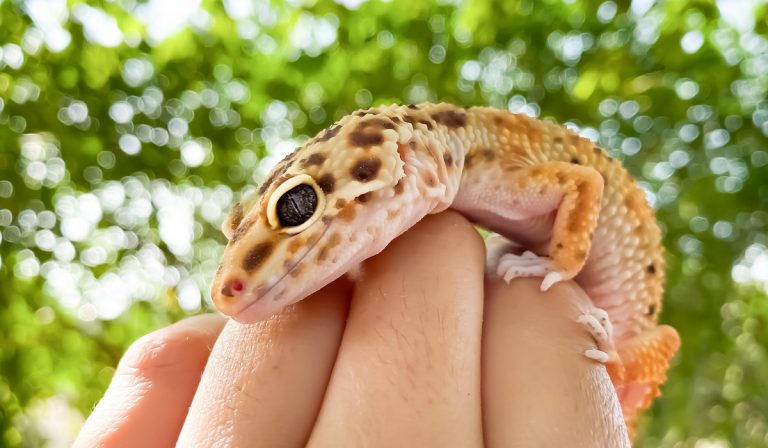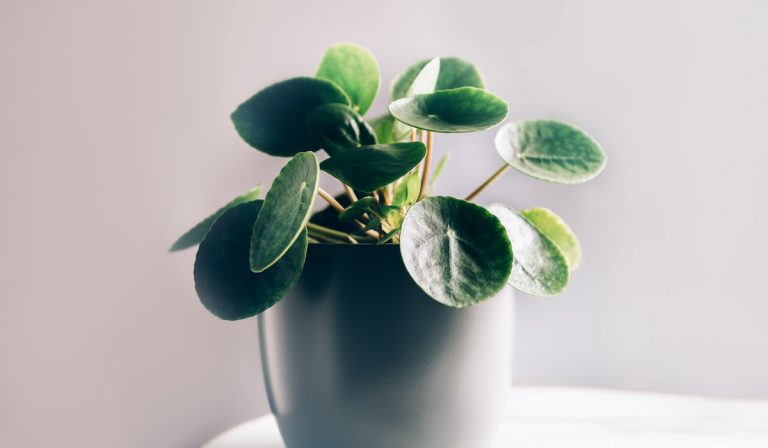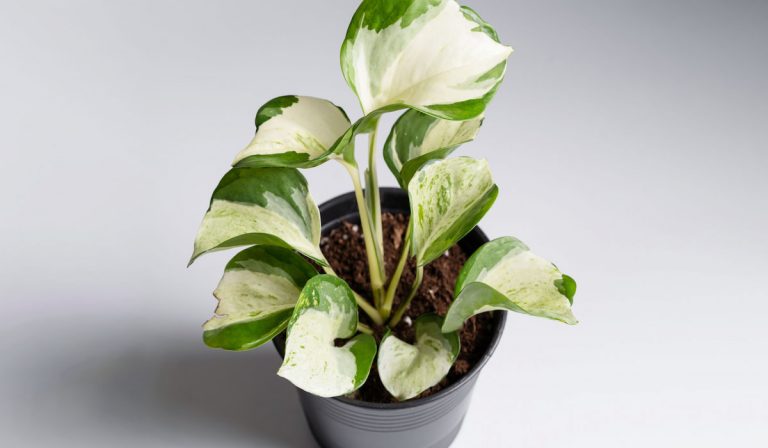Are Cucumbers Self-Pollinating?
Gardening is fun until your plants refuse to produce fruits. If you are growing a plant like cucumber, you need to know the right environment for the plant and also how the plant is pollinated.
What is pollination and how do you pollinate cucumbers? Must cucumbers be pollinated? Read this article.
Are cucumbers self-pollinating? There are different kinds of cucumber varieties. Some can be self-pollinating while others are cross-pollinated.
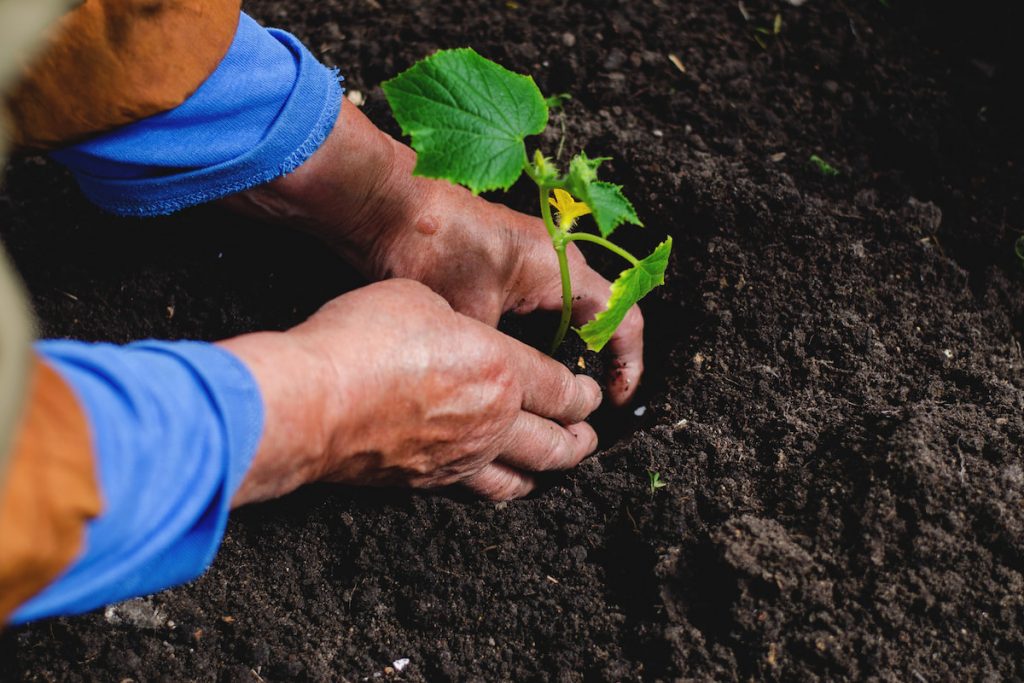
There are still other kinds of cucumber varieties that do not need to be pollinated. You need to know the type of cucumber that you are growing.
What variety is right for you? Can you plant the seeds of cucumber fruits that are produced from unpollinated flowers? Continue reading.
Table of Contents
Pollination of Cucumbers
Most plants need pollination to produce fruits.
It is the same for most cucumber varieties. If your cucumber variety is not producing fruits, the first question an expert gardener will ask will surely be related to pollination.
What then is pollination and how are cucumber flowers pollinated?
What is Pollination?
Pollination is derived from the word “pollen”. Pollen or pollen grains are similar to dust and contain the sperm cells used to fertilize flowers.
Pollen is contained in male flowers or flowers with anthers (male parts). Pollen grains travel to the stigma (female part) to fertilize the eggs inside the ovule.
Pollination occurs when the female part of a flower is fertilized by pollen from the male part.
For pollination to occur, an agent must help to transfer or transport the pollen grains. Some agents of pollination are:
- Bats
- Man
- Wind
- Bees
- Butterflies
- Beetles
- Hummingbirds
- Squirrels
There are basically two types of pollination. They are:
- Self-Pollination: Self-pollination occurs when pollen grains from the anther of a flower pollinates the eggs in the stigma of the same flower or a flower from the same plant (i.e. individual). This means that for plants that can pollinate themselves, they do not need to grow around other plants.
- Cross-Pollination: In cross-pollination, pollen grains from the anther of a flower pollinates the eggs in the stigma of a flower in a different plant. Cross-pollination is different from cross-fertilization, which is the pollination of the flowers of another variety or species of plant.
Are Cucumbers Self or Cross-Pollinating?
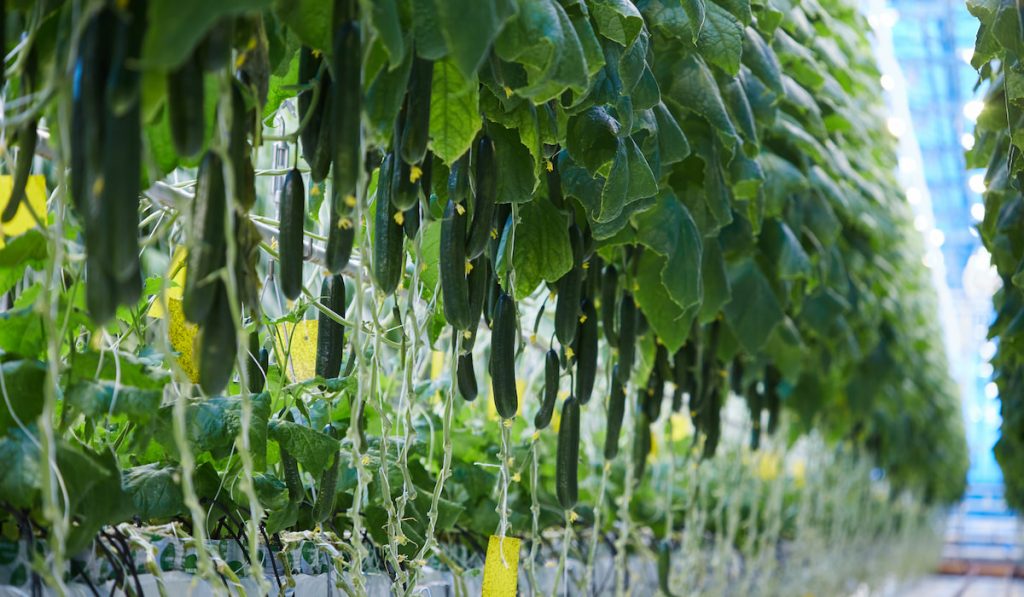
Are cucumbers self or cross-pollinating? Well, it depends on the variety. All varieties of cucumbers are classified into three classes based on pollination:
- Monoecious Varieties: Cucumber varieties with both male and female flowers available on the same plant.
- Gynoecious Varieties: Varieties that produce only female flowers.
- Parthenocarpic Varieties: They are gynoecious varieties, but can grow fruits without pollination.
Later in this article, you will learn more about cucumber varieties (in terms of pollination).
Do Cucumbers Need Pollination?
Remember that there are three major groups of cucumber varieties. Monoecious varieties that possess both male and female flowers are self-pollinating, so they do not need other plants around them to produce fruits.
Gynoecious varieties with just female flowers are cross-pollinating and need monoecious cucumbers to grow around them for a successful pollination (Very few or no variety produces only male flowers).
Parthenocarpic varieties are gynoecious but can produce fruits without pollination.
When they are pollinated, they produce diploid fruits that contain viable seeds. When they are not pollinated, they produce haploid fruits that contain no seeds or non-viable seeds.
Diploid fruits are fruits that contain two sets of chromosomes (i.e. one set from each parent). Haploid fruits contain just a single set of chromosomes from the mother plant.
How to Pollinate Cucumbers
So long as your cucumber plants are exposed to the agents of pollination (i.e. wind, insects, birds, etc.), they will be pollinated.
If, however, they are not exposed or you just want to increase the success rate of pollination, follow the steps below:
- Identify male flowers and female flowers.
- Collect dust of pollen grains by swabbing cotton on the male flowers.
- Locate the stigma of the female flowers and rub some pollen grains onto it.
- Do so continually until you are satisfied.
You can also pollinate your cucumbers with fans, but the success rate is quite low. You should have an expert gardener around you for the first time trying manual pollination.
Before manually pollinating cucumbers, you need male flowers from monoecious varieties.
Also, you do not need to worry about pollination when you have parthenocarpic varieties. The table below lists some monoecious and parthenocarpic varieties:
| Monoecious | Parthenocarpic |
| Burpless #26 | Baby Persian |
| Bush Champion | Socrates |
| Ashley | Suyo Long |
| Fanfare | Tyria |
| Dasher II | Diva |
| Early Pride | Monika |
| Marketer | Sweet Success |
| Marketmore 76 | Garden Oasis |
| Long Green Improved | Chelsea Prize |
| Poinsett 76 | Green Fingers |
| Salad Bush | |
| Muncher | |
| Straight Eight | |
| Sugar Crunch | |
| Spacemaster | |
| Tendergreen Burpless | |
| Pickling | |
| Tanja | |
| Burpee Pickler | |
| Bush Pickle | |
| Boston Pickling | |
| Carolina | |
| Fancipak | |
| Calypso | |
| Little Leaf H-19 | |
| National Pickling | |
| Homemade Pickles | |
| Picklebush | |
| Supremo | |
| Pick a Bushel |
(Sources: Monoecious, Parthenocarpic)
Now you know how to pollinate your cucumbers and which variety you can pollinate or choose not to pollinate, right? What if your cucumber is not fruiting? Continue reading.
What If Your Cucumber Plants Are Not Producing Fruits?
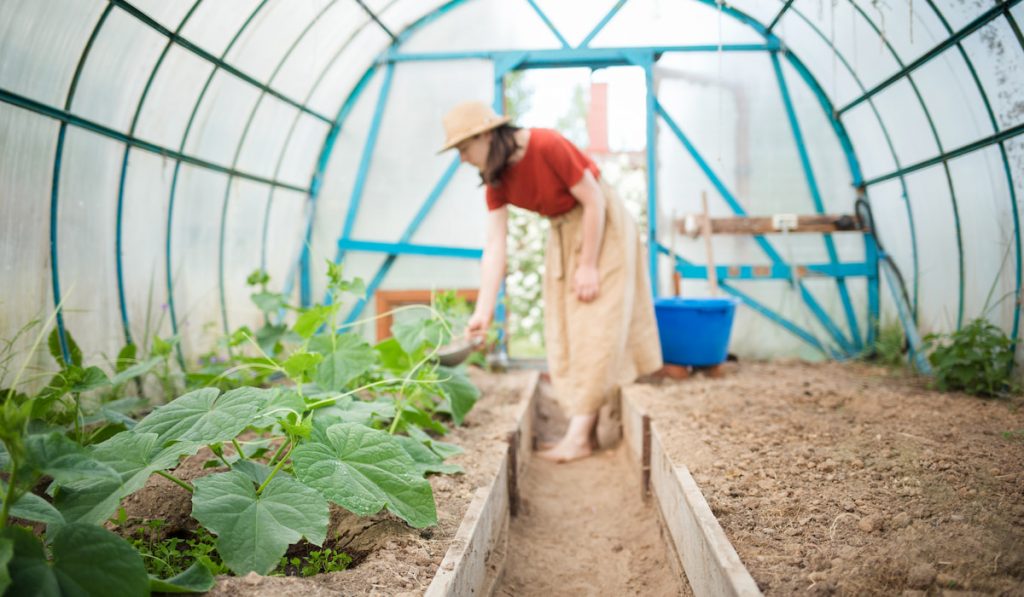
Remember that if your plants are not fruiting, the first thing to consider is pollination. Even if pollination did occur, your plants may not fruit if they are grown in unfavorable conditions.
Some favorable conditions to grow cucumbers are:
- Temperature: Cucumbers need at least 70°F (21°C) to grow well and produce fruits. Any temperature cooler than that may stop your plants from fruiting. You should try to grow your cucumbers in greenhouses.
- Sunlight: Cucumbers need a lot of sunlight because they are full-sun plants. As plants that need full sun, cucumbers need at least 6 hours of direct sunlight daily. Without the availability of light, your plants may not fruit. You can install grow lights above your cucumbers if you feel that the light is not enough.
- pH: Cucumbers need a pH between 6 and 7. Any pH lower than 6 is too acidic and can cause chlorosis (yellowing of leaves) and also prevents your cucumbers from absorbing nutrients. Any pH higher than 7 is too alkaline and can prevent your cucumbers from absorbing water well.
- Nutrients: What brand of fertilizer are you using for your cucumbers? As a tip, use nitrogen-rich fertilizer for young (vegetative) cucumbers then use fertilizers rich in phosphorus and potassium for flowering and fruiting cucumbers. You can use compost and well-rotted manure.
Make sure that your cucumbers are in the right conditions. If the conditions are right, your cucumbers will produce fruits.
Questions Related to Growing and Pollinating Cucumbers
I know that you may have a lot of questions about the pollination of cucumbers. Don’t worry. Let me guess some of them and give you the right answer.
1. What Type of Cucumber Variety Should You Grow?
You can grow any type of cucumber. You can grow monoecious, gynoecious, and parthenocarpic varieties.
For certainty in fruit production, you should grow parthenocarpic varieties (just remember that when they produce fruits without pollination, you will not have viable seeds to plant).
For the purpose of pollination, make sure that you have a monoecious cucumber around.
Remember to grow cucumbers that can grow in your specific region and season.
2. Can You Pollinate Gynoecious Cucumbers?
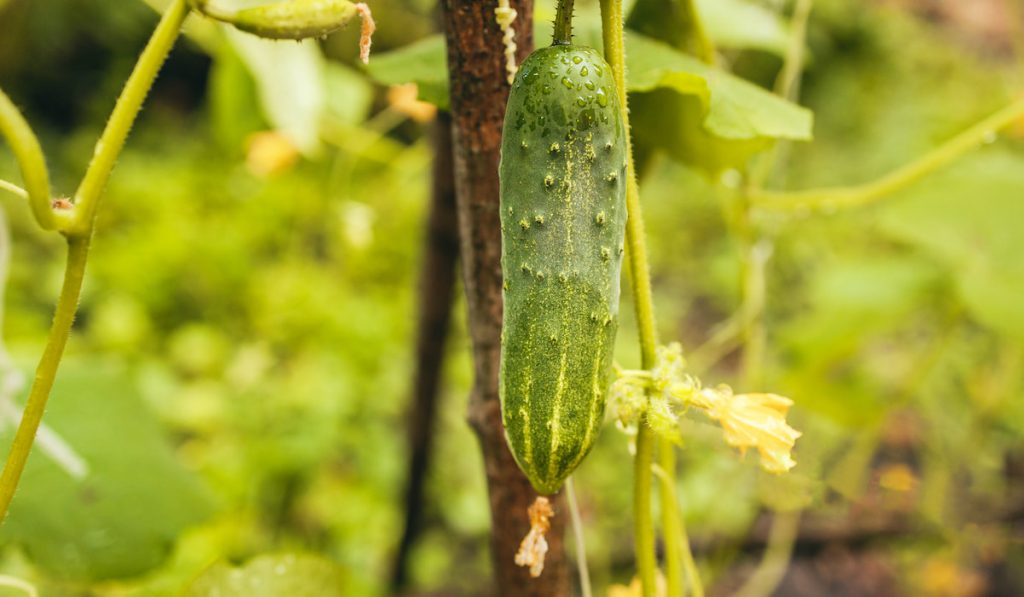
Yes, you can. Not all cucumber varieties that produce just female flowers are parthenocarpic.
Parthenocarpic varieties can be pollinated (to produce diploid fruits), but they produce haploid fruits when they are not pollinated.
Talking about other gynoecious varieties, they need to be planted around monoecious varieties to be pollinated.
Without cucumber plants with male flowers around a gynoecious cucumber plant, the gynoecious cucumber plant will not produce fruit (not unless it is parthenocarpic).
Gynoecious varieties can be pollinated naturally by wind, insects, and other agents of pollination. You can also pollinate them yourself.
3. If Parthenocarpic Cucumbers Have No Fruits, How Are They Made?
Remember that all parthenocarpic cucumbers are gynoecious, but not all gynoecious cucumbers are parthenocarpic.
You should know that parthenocarpic varieties will still grow and produce parthenocarpic fruits when they are pollinated.
The difference between the fruits of pollinated and unpollinated parthenocarpic varieties is that the pollinated fruits are diploid and have seeds (that can grow to become new parthenocarpic plants) while the unpollinated fruits are haploid and do not have fertile seeds.
To simplify it, just remember that every female flower can be pollinated to produce fruits, but the female flowers of parthenocarpic varieties can produce fruits without pollination.
4. When Will Cucumber Fruits Appear After Pollination?
You should notice the developing fruit in less than 10 days after a successful pollination.
So long as the conditions are right and pollination took place, your plants will definitely produce fruits. Your cucumber fruits will be ready for harvest when they are dark to medium green and firm.
Remember to store your cucumbers appropriately.
5. Will Picked Fruits Ripen?
No. Plucked or picked cucumbers will not ripen. You should wait for the fruit to ripen before you harvest them. Ripe cucumbers are bright to dark green in color and are firm to touch.
I know that your curiosity has been satisfied.
Final Thoughts
Most but not all cucumber varieties need to be pollinated. If you have cucumbers, make sure that you know the variety that you are growing and follow the instructions and tips in this article to get sweet cucumbers.
Resources
- https://www.johnnyseeds.com/on/demandware.static/-/Library-Sites-JSSSharedLibrary/default/dw98b4caf9/assets/information/8989-cucumbers-types-terminology.pdf
- https://www.seminis-us.com/resources/agronomic-spotlights/understanding-flowering-habits-cucumbers/
- https://www.reneesgarden.com/blogs/gardening-resources/renees-garden-cucumber-types
- https://hortnews.extension.iastate.edu/faq/how-do-gynoecious-cucumber-varieties-differ-other-varieties
- https://www.27east.com/home-garden/cukes-tips-tricks-and-picks-for-growing-cucumbers-1674776

